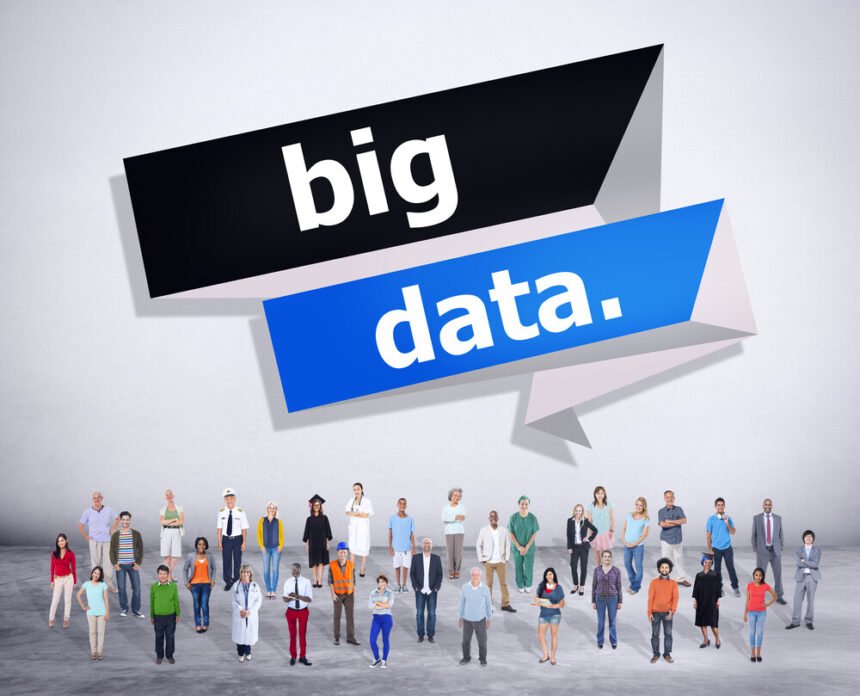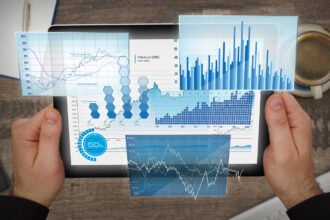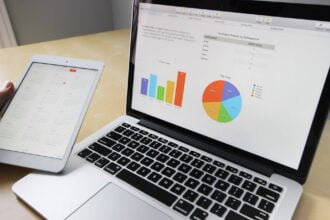Brands in every industry are utilizing big data to improve efficiency and deliver higher quality solutions. However, big data logistics can’t be entirely automated. They rely heavily on the input and expertise of data scientists.
Jeanne Harris, one of the senior executives for Accenture Institute for High Performance, has stated that data analytics is an essential and growing field. Harris points out that big data would be entirely useless without highly trained analytics experts.
Career experts have analyzed Google Analytics reports and discovered that big data jobs opportunities have multiplied over the past few years.
Big Data Career Options
Since the demand for big data has exploded in recent years, many new career options have opened up. According to Google Analytics reports from indeed.com, the number of people searching for a big data analytics jobs on Google nearly quadrupled between 2012 in 2017.
Here are some big data analytics jobs to consider.
Data Engineer
Data engineers develop the infrastructure needed to store and process big data. David Bianco, a big data engineer that specializes in developing geospatial data pipelines states that big data solutions are invaluable in countless industries states that data engineers create the essential foundation for it.
Data engineers can earn extremely lucrative salaries. The average data engineer on site around $95,000 a year. Senior data engineers earn over $120,000 a year.
Data engineers specialize in developing specific parts of the data pipeline. Bianco states that the exact skill sets that data engineers need will depend on their specialty, but data engineers typically need to understand Hadoop-based languages, SQL technology, Python, C and C++ and machine learning. He claims that Python is probably the most important programming language.
“The skills and tools that are utilized on the job are highly dependent on which part of the data pipeline you focus on. For myself, I’m at the tail end of the pipeline building APIs for data consumption, integrating external datasets, and analyzing how our data is used to further improve our end product.
With APIs, I really feel web languages are sufficiently robust, so it’s not as important which one you choose as long as it is embraced as a common language amongst your team. Our environment relies heavily on both PHP and Python. Almost all of my code relating to data ingestion from other providers is written in Python.”
Machine Learning Researcher
Machine learning researchers use predictive technology to use big data to its fullest potential. They rely on machine learning algorithms to process data efficiently, without degrading its integrity.
Machine learning researchers must be knowledgeable with common programming languages, such as Python, C++ and other general-purpose languages. They don’t need to be as proficient as data engineers, but they need to be expert statisticians and have a strong foundation in calculus.
What Industries Can Big Data Professionals Work in?
Big data scientists are employed in almost every field. Here are some common examples.
Recruitment
Recruiters are more dependent on big data than ever before. They have started using bond staffing software, which wouldn’t be possible without big data and cloud networks.
Banking
The banking industry is incredibly dependent on big data. Data has always played a role in the financial sector, but financial firms are leveraging it to develop better insights on their customers and fine-tune their actuarial models. Someshwar Chidurala, Digital Marketing Analyst for Orchestrate Technologies states that banks are primarily relying on big data to optimize forecasts on customer intelligence. Kris St. Martin is Vice President of Insurance and Bank Program Director at CBIZ states that they must also focus on addressing the growing risk of cybersecurity threats.
Human Resources
Human resources professionals are depending more on automation and big data than ever before. A number of companies are contracting data scientists and professionals to develop applications such as People HR to automate their HR functions.
Political
Since the 2008 U.S. Presidential Election, political parties have demonstrated the edge big data offers to candidates. It became even more prominent in 2016. A few months ago, Wired published a post claiming that big data would ultimately determine the winner of the United States presidential election, which ultimately proved to be true.
Political parties around the world are relying more on big data experts to help forecast trends and identify opportunities for their candidates.
Web Hosting
The web hosting industry is facing a myriad of challenges in the 21st Century. Big data is offering many of the solutions they need.
A number of hosting providers have expanded their big data teams, such as:
- AG is a hosting company from Antigua and Barbuda, which has used big data to analyze cybersecurity threats, such as DDoS attacks and deploy the best possible solutions.
- AG recognizes that many of its customers depend on big data, but have limited budgets. They offer economic hosting services to companies that need to store dozens of gigabytes of data.
- TrueHoster serves customers in a variety of industries and uses big data to create custom service plans for all of them.
Big data will continue to shape the hosting industry in unexpected ways.
Big Data is a Growing Career
Big data has created tremendous career opportunities for programmers and engineers in numerous industries. Employment is expected to surge in the coming years.










